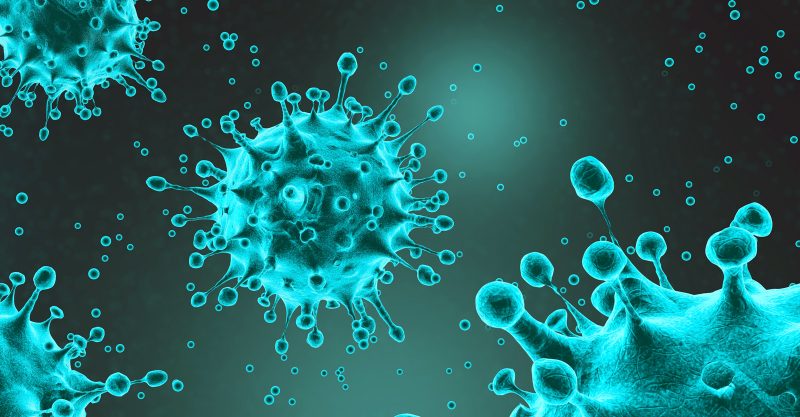© December 7, 2020 Children’s Health Defense, Inc. This work is reproduced and distributed with the permission of Children’s Health Defense, Inc. Want to learn more from Children’s Health Defense? Sign up for free news and updates from Robert F. Kennedy, Jr. and the Children’s Health Defense. Your donation will help to support us in our efforts
So stunning is the lack of protection afforded by the mumps portion of the MMR II vaccine that it is the subject of a false claims suit that has been accepted by the federal government against MMR II manufacturer and pharmaceutical giant Merck.
In the recent paper by Gold et al. (2020, mbio.asm.org), an inverse relationship is seen between mumps immunity (IgG titers) and COVID-19 severity. Those individuals who were considered to be “functionally immune” to COVID-19 showed the highest IgG titers and as symptoms progressed through asymptomatic, mild, moderate and severe patients, these titers dropped consistently.
The “severe” group, consisting of four individuals, had an average mumps titer of 8 AU/mL, which functionally falls below the level required even for mumps immunity. It should be noted that all 50 participants in this portion of the study had received at least one MMR II (Merck) vaccine.
From this, the authors of the paper suggest that the MMR II vaccine is protective against severe cases of COVID-19 and specifically state, “The significance of our study is that it showed that mumps titers related to the MMR II vaccine are significantly and inversely correlated with the severity of COVID-19-related symptoms, supporting the theorized association between the MMR vaccine and COVID-19 severity.” No correlation was seen between COVID-19 severity and measles or rubella titers.
Based on this very limited relationship, it is foolish to suggest that the MMR II vaccine is somehow protective against severe COVID-19. It has been known historically that protection against mumps via the MMR II vaccine wanes precipitously after the two-shot series is given (at 12-15 months and 4-6 years).
Lewnard et al. (2018) calculate that protection completely wanes over a period of 27 years (with a 95% confidence interval range between 16 and 51 years). There have recently (starting in 2006) been outbreaks of mumps in fully vaccinated populations, including a very recent exposure involving an asymptomatic person at a wedding that led to a multistate outbreak involving 41 vaccinated individuals (Donohue et al. 2020 MMWR). Even the Centers for Disease Control and Prevention acknowledge that most mumps cases in the U.S. since 2006 are among individuals who received both doses of the MMR II vaccine.
Looking at the data from the Gold et al. (2020) study, significant numbers of severe cases where no mumps Ab are seen even though the MMR II was received. This is more of a measure of the immune system’s ability to seroconvert (i.e., produce antibodies) after some type of immune challenge, which is a red herring. If the authors instead had shown a lower proportion of severe cases in the MMR II group versus the no MMR II control group, then there would perhaps be an argument for MMR II vaccination. However, no cross-comparisons between the two groups were ever completed.
The artifact of waning mumps immunity correlating to COVID-19 severity has nothing to do with vaccine status, as all the subjects were vaccinated. What this shows instead is a correlation between poor seroconversion to the attenuated mumps virus in the vaccine and severity of COVID-19. This may suggest that hypoimmunity to the mumps vaccine virus is a surrogate for overall sluggish immunity among individuals, which would mean they would have a more difficult time fighting COVID-19.
Confounding the analysis is the fact that several individuals in the MMR II group and the no MMR II control group showed very high antibody titers indicative of full mumps infection or some type of exposure to wild-type mumps virus. Unfortunately, the authors did not consider the fact that MMR II recipients can still get the mumps and there is no mention of this in the paper.
So stunning is the lack of protection afforded by the mumps portion of the MMR II vaccine that it is the subject of a false claims (Qui Tam) suit that has been accepted by the federal government against MMR II manufacturer and pharmaceutical giant Merck.
Unfortunately, the results of the Gold et al. (2020) study are being fraudulently heralded by the lead author’s organization World.org as “COVID-19 MMR Vaccine Protection” meaning to suggest falsely that the MMR II somehow protects against COVID-19. However, this paper does not prove any such correlation. Such false claims should be summarily condemned by the scientific and medical community.
The views and opinions expressed in this article are those of the authors and do not necessarily reflect the views of Children’s Health Defense.SUGGEST A CORRECTION

Brian S. Hooker, PhD, PE, is an Associate Professor of Biology at Simpson University in Redding California where he specializes…
Sign up for free news and updates from Robert F. Kennedy, Jr. and the Children’s Health Defense. CHD is implementing many strategies, including legal, in an effort to defend the health of our children and obtain justice for those already injured. Your support is essential to CHD’s successful mission.

